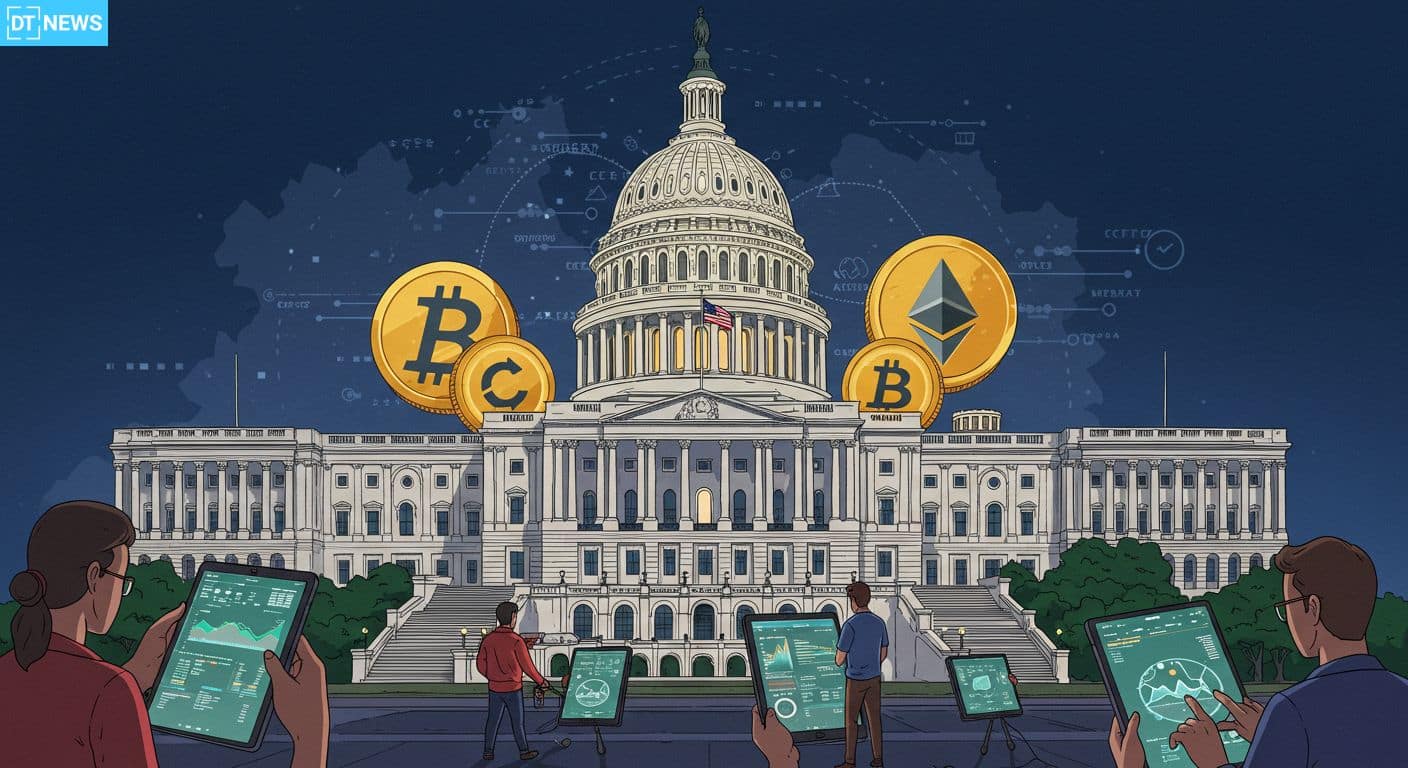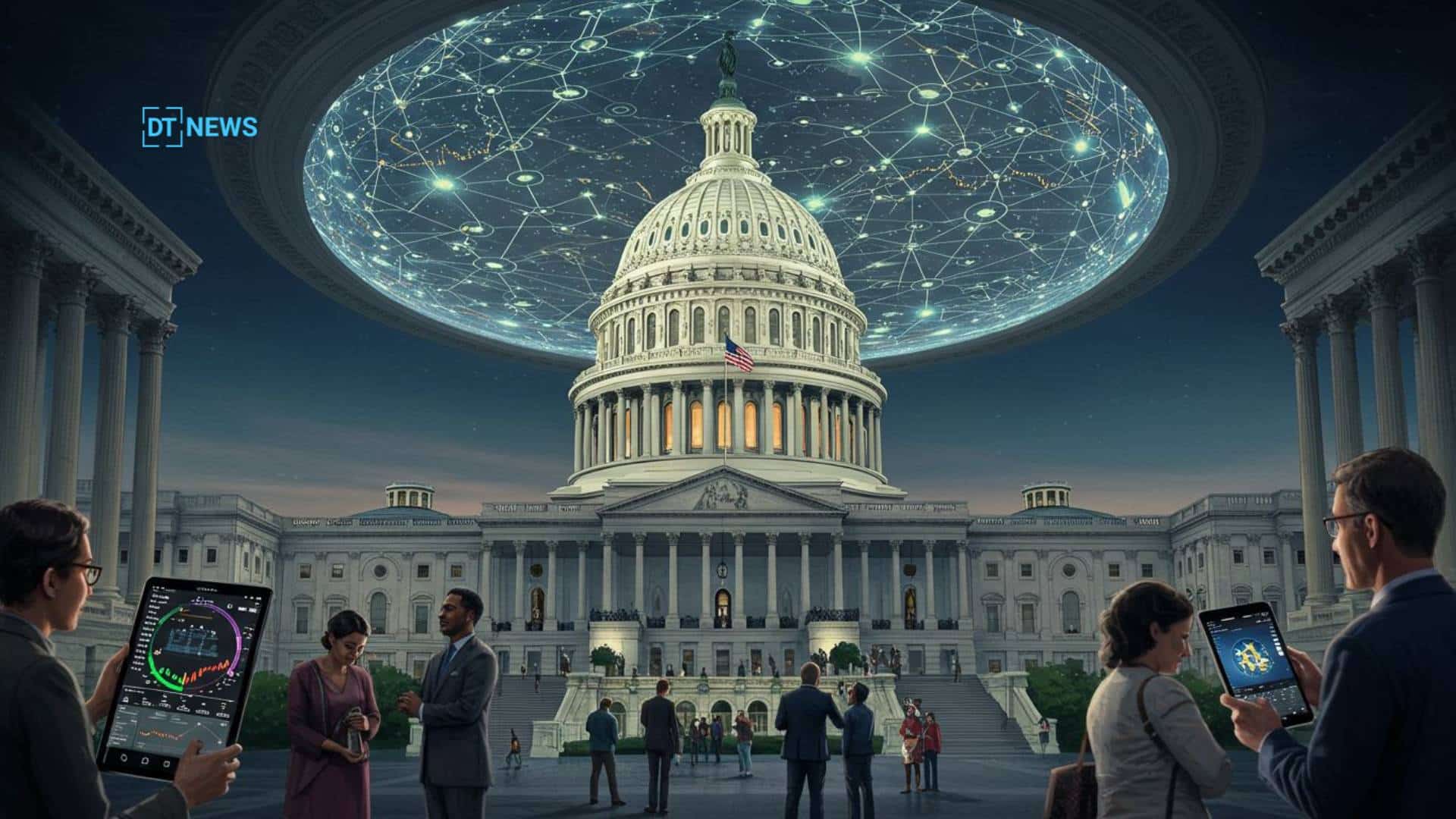Washington is at the heart of a very big change. According to latest reports, the Commodity Futures Trading Commission (CFTC), based in the capital, has now issued guidance that restores US traders’ legal access to non-U.S. cryptocurrency exchanges.
This moves the regulatory environment away from the uncertainty and enforcement-heavy route and gives Washington crypto-linked markets the ability to participate in global crypto liquidity pools again.
Reinstating the FBOT Framework: Clarity Restored
The CFTC’s Division of Market Oversight just recently published an advisory on how non-U.S. platforms can now legally register under existing rules to serve U.S. traders by becoming a Foreign Board of Trade (FBOT). The agency seems to be reminding the market that the FBOT regime, created decades ago, is still operational.
This has come to end years of regulatory confusion and finally giving a clear path for international exchanges to re-engage American participants.

Acting Chair Caroline Pham said the guidance provides;
“the regulatory clarity needed to legally onshore trading activity that was driven out of the United States” because of enforcement-first approaches in previous years.
She also said US traders now have more choices and access to global markets that were previously restricted.
Also read: New CFTC Framework Aims to Launch Spot Crypto Trading in the U.S.
From Confusion to Opening Doors: Context and Enforcement History
Under the Biden administration, the CFTC brought several enforcement actions; most notably against Binance in 2023, asserting that platforms offering derivative services should be registered as designated contract markets (DCMs). These actions caused many foreign exchanges to block US traders or move operations offshore.
Today’s advisory says registering as an FBOT, not a DCM, is the right legal channel for foreign exchanges to serve U.S. customers. To qualify as an FBOT, a foreign exchange must show robust home-country supervision and commit to information sharing with U.S. regulators. This takes the enforcement-driven ambiguity away and replaces it with a transparent path.
How the FBOT Registration Process Works
Under Part 48 of the CFTC rules, a foreign board of trade must submit an application and show it meets regulatory standards comparable to U.S. designated contract markets and clearing organizations.
It must describe its membership structure, electronic trading system, contract terms, settlement and clearing mechanisms, regulatory regime, enforcement protocols and information-sharing arrangements.
FBOTs have been known to allow U.S. participants enter trades directly into their matching system through a U.S.-registered intermediary.
As of July 2024, the rules were updated to include U.S.; introducing brokers (IBs) registered with the CFTC, as eligible intermediaries for order routing. This provides modernized access infrastructure that matches today’s market.

The Washington Turn
These FBOTs and jurisdictional limits signify a Washington-led change from enforcement to a structured reintegration of the US market into global crypto ecosystems. The advisory clears up for American traders seeking liquidity and foreign exchanges looking to legally serve US customers.
FBOTs will likely encourage exchanges like Binance and Bybit to revisit their US access policies and go for FBOT registration instead of exclusion. For US traders; this means more liquidity, more platforms and inclusion in global markets.
Conclusion
Based on the latest research, Washington’s CFTC has opened up channels for US traders to access offshore exchanges via established FBOTs. By reaffirming the FBOT framework and jurisdictional clarity; the agency has given a clear and legal roadmap for both practitioners and regulators.
US traders will now have renewed global liquidity and access; offshore platforms and a clear path to serve US customers.
Also read: Trump’s CFTC Appointee Sacks Top Ranks, Eyes Broader Crypto Oversight
Summary
CFTC has opened up pathways for US traders to access offshore exchanges through the revived FBOT system. Acting Chair Caroline Pham said it clears up years of enforcement-driven uncertainty. It is a Washington-led move towards structured reintegration with global markets.
Glossary
CFTC – Commodity Futures Trading Commission; US regulator for derivatives and some crypto markets.
FBOT – Foreign Board of Trade; a non-US exchange registered to serve US traders.
DCM – Designated Contract Market; a US exchange for futures and options.
Liquidity – How easy it is to buy or sell something without affecting the price.
Jurisdiction – The legal authority over a company or market.
FAQs for CFTC Forgotten Rule for US Traders
What is an FBOT?
A Foreign Board of Trade (FBOT) is a non-US exchange; registered with the CFTC so Americans can trade on it.
How is an FBOT different from a DCM?
A DCM is a fully U.S. regulated exchange, an FBOT is a foreign exchange allowed to serve U.S. traders without becoming a domestic market.
Why was the Binance case important?
In 2023; the CFTC charged Binance with not registering as a DCM; and it caused uncertainty that scared foreign exchanges away from US users.
What risks remain for US traders and exchanges?
Although the FBOT framework is clearer, congressional legislation could change regulatory oversight again.






































